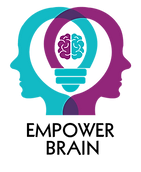FAQs
What is the ideal age for learning abacus?
What is the ideal age for learning abacus?

The ideal age for learning abacus may vary depending on the individual’s cognitive development and interest. However, generally, children between the ages of 5 to 14 years old are considered the best age group to start learning abacus.
During this period, children have a high level of brain plasticity, making it easier for them to learn and master new skills. Additionally, they are in the early stages of cognitive development, which includes the development of numerical and mathematical concepts.
By starting to learn the abacus at this age, children can develop strong foundational skills in arithmetic and mental math, which can benefit them throughout their academic and professional lives. Furthermore, learning the abacus at a young age can help children develop concentration, memory, and visualization skills, which can aid them in other areas of their life as well.
Can youth or an adult also learn abacus at any age?
Yes, a youth or an adult can certainly learn abacus at any age. While it is true that early ages have a higher level of brain plasticity and may learn more quickly than adults, adults can still benefit from learning the abacus.
Especially since our newly invented Abacus goes hand by hand with the educational curriculum system and has newly invented techniques to help with multiplication, division and much more.
Many adults have successfully learned the abacus later in life and have seen improvements in their mental arithmetic skills, concentration, and overall cognitive function. The benefits of learning the abacus are not limited to age, and it can be an effective tool for anyone looking to improve their mental math abilities.
How much should one practice to perfect abacus calculations?
Typically, it is recommended that students practice using the abacus for 20-30 minutes per day, at least 4-6 times per week. It’s important to maintain a regular practice routine, can improve the speed for doing mental calculations, develop muscle memory and become more proficient in using the abacus.
As the student becomes more skilled, they can gradually increase the difficulty level of the calculations they are performing, and practice for longer periods of time if desired. With dedicated and consistent practice, it is possible to achieve a high level of proficiency.
Can I apply to be a part of the team or work as a contractor?
Typically, it is recommended that students practice using the abacus for 20-30 minutes per day, at least 4-6 times per week. It’s important to maintain a regular practice routine, can improve the speed for doing mental calculations, develop muscle memory and become more proficient in using the abacus.
As the student becomes more skilled, they can gradually increase the difficulty level of the calculations they are performing, and practice for longer periods of time if desired. With dedicated and consistent practice, it is possible to achieve a high level of proficiency.
Will the child get confused in doing his math class work after learning abacus?
Will the child get confused in doing his math class work after learning abacus?
No, learning the abacus should not cause a child to become confused when doing their classwork related to math calculations. In fact, learning the abacus can help children develop a stronger foundation in mathematics and mental arithmetic, which can make it easier for them to do their classwork.
The abacus is a tool that can help children visualize mathematical concepts and understand them more deeply. By practicing mental math with the abacus, children can become more confident and skilled in performing calculations in their heads, which can translate to better performance on their classwork and tests.
How do I improve my speed of calculation in the abacus?
Improving your speed in abacus takes time and consistent practice. Keep practicing regularly for at least half an hour daily and be patient with yourself as you work to improve your skills.
Improving your speed of calculation in abacus requires consistent practice and focus. Here are some tips that can help you improve your speed:
Set specific goals: Decide on specific goals that you want to achieve within a particular time frame. For example, you can aim to solve a specific set of problems within a certain time limit.
Practice regularly: Consistency is key when it comes to improving your speed in the abacus. Try to practice for at least half an hour every day.
Focus on accuracy first: When practicing, focus on accuracy first before trying to speed up your calculations. Make sure that you are solving the problems correctly before trying to do them faster.
Use visualization techniques: Abacus is all about visualizing numbers and using the beads to perform calculations. To improve your speed, try to visualize the numbers in your mind before moving the beads.
Break down complex problems: Break down complex problems into smaller, more manageable steps. This will help you solve the problem more quickly and accurately.
Use online resources: There are many online resources, such as abacus games and exercises, that can help you practice and improve your speed.
How many levels are there in abacus program?
The number of levels in this abacus program is 8, The general idea is that each level builds on the previous one and covers increasingly complex calculations to help students develop strong mental math skills.
